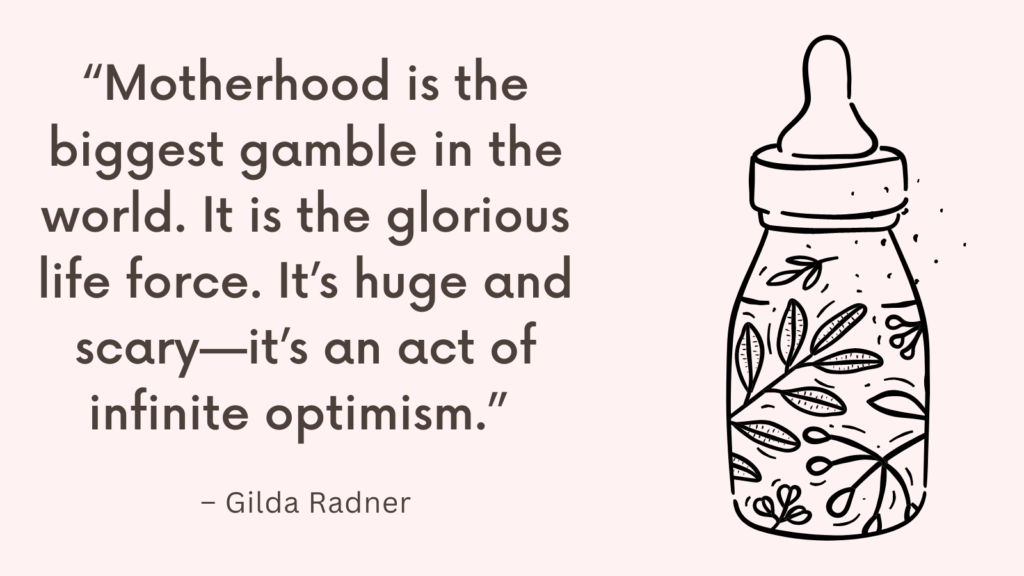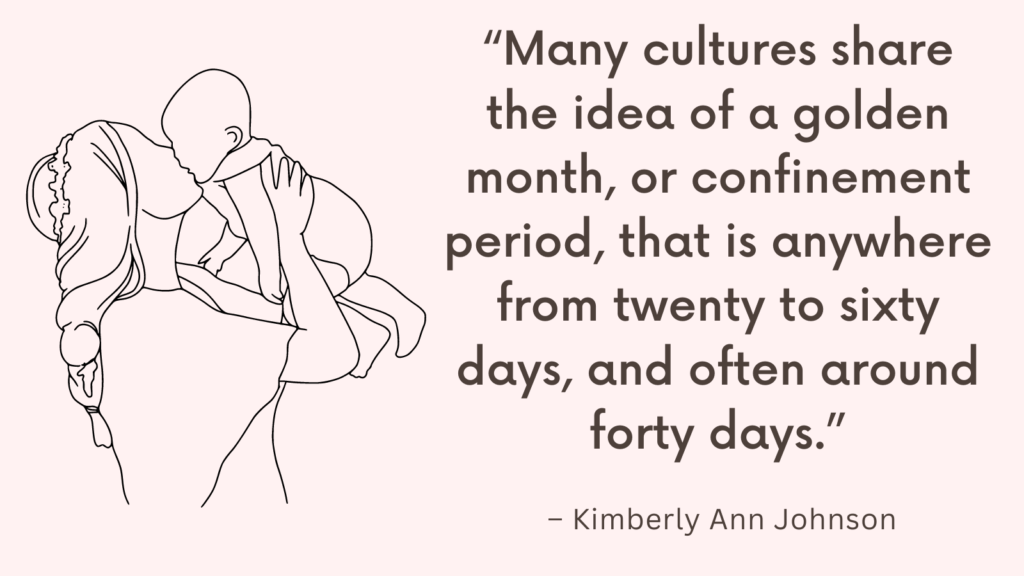This post contains some of the best mom mental health quotes.
Mom Mental Health Quotes
1. “Did you know that all over the world, postpartum depression (PPD) and anxiety (PPA) disorders affect a full fifteen to twenty percent of new mothers? That is a staggering statistic.” – Ariel Dalfen M.D
2. “Myths about depression also abound: there are myths that depressed people are weak and lazy, that depression is not really an illness but an attitude problem, and that there must be something wrong with your personality if you suffer from depression or anxiety, to name just three. When depression or severe anxiety affects new moms, the myths become overwhelming!” – Ariel Dalfen M.D
3. “Single mothers are twice as likely as partnered mothers to report depression and anxiety. Even two-parent households are completely overwhelmed with the amount of work to be done.” – Abigail Burd, LCSW, PMH-C
4. “Stigma is the fear of judgment. We may be afraid others will think we are to blame or that we’re bad mothers if we voice anything less than maternal bliss. But you know what? Caring mothers get help.” – Abigail Burd, LCSW, PMH-C
Related: Best 10 Postpartum Books
5. “Some new mothers find thoughts pop automatically into their heads, while others aren’t as aware of their negative beliefs until they spend some time reflecting, journaling, or in therapy. Here’s an example of an automatic negative thought: “I’m failing as a mom.”” – Abigail Burd, LCSW, PMH-C
6. “Unfortunately, fear of stigma keeps many postpartum women from speaking up. Some mothers fear their children could be removed from their care, while others simply fear being judged.” – Abigail Burd, LCSW, PMH-C
7. “Many women who have postpartum depression and postpartum anxiety problems get very anxious about “the authorities” being called. In fact, reaching out for help shows tremendous strength.” – Ariel Dalfen M.D
Related: Top 16 C Section Recovery Must Haves For A Smooth Recovery
8. “Part of getting better is learning how to address and change the things in your life that are creating or worsening your depression and anxiety.” – Ariel Dalfen M.D
9. “The myths about postpartum depression are very damaging. They cause women to feel like bad mothers and to think that something is wrong with them. When these myths become too powerful, they stop you from acknowledging that you are having a hard time and isolate you with your sadness.” – Ariel Dalfen M.D
10. “Some mothers do not feel ready emotionally for even longer for reasons like not feeling comfortable or confident with their changed body, birth trauma, past sexual trauma that has been re-triggered, and sleep deprivation.” – Abigail Burd, LCSW, PMH-C
Related: Fatherhood Blues – What Is It And How To Cope?
11. “Perfectionists also have a hard time as new mothers. For women who are accustomed to having everything in life well organized, tidy, and perfectly done, having a child can be very unsettling and tremendously overwhelming.” – Ariel Dalfen M.D
12. “New mothers who tend to be anxious and have perfectionist personalities often find breastfeeding stressful because they feel uncomfortable not knowing exactly how much milk their child is consuming.” – Ariel Dalfen M.D
13. “For some new mothers, the end of breastfeeding is sad because it is the end of a period of exclusivity. The role that only you could provide for your child can now be fulfilled by other people.” – Ariel Dalfen M.D
Related: Stay At Home Mom Schedule (+Free Printables)
14. “Other moms feel guilty if they think that they are not being perfect mothers (whatever that means) or meeting their partners’ expectations of them.” – Ariel Dalfen M.D
15. “Many mothers in individualist Western cultures are isolated. Living with just a partner and child(ren) separates new mothers from the aunties, mothers, big sisters, cousins, and friends who nurture new mothers in traditional village life, throughout the fourth trimester and beyond.” – Abigail Burd, LCSW, PMH-C
16. “Fifty to 80 percent of new mothers will at times feel sad, irritable, and occasionally anxious. You may feel you overreact to situations and cry more easily.” – Ariel Dalfen M.D
17. “Of course, there are as many reactions to being a mother as there are mothers. But new mothers who are depressed frequently tend to think that all other mothers love their new role and are thriving, while they are horrible people who cannot make it work.” – Ariel Dalfen M.D
Related: Best 8 Books For Stay At Home Mom
18. “As mothers, we are all situated somewhere along the guilt continuum at any given moment and our position on this continuum changes every day with new situations.” – Ariel Dalfen M.D
19. “The thoughts often emerge when women think that they are terrible mothers, that they should never have had a child, and that they are “bad” for feeling as they do.” – Ariel Dalfen M.D
20. “Sixty to 70 percent of mothers grieving a stillbirth experience depressive symptoms one year later. Fifty percent have symptoms for four years or more. Clearly, we don’t just get over it.” – Abigail Burd, LCSW, PMH-C
Related: Best 100 Self-Care Ideas to Try
21. “Many new mothers have great expectations about how much they will love being a mother and enjoy a new lifestyle. They look forward to hours of playing and playdates, being off work, taking long walks, sitting in cafés, and traveling with their newborns. Then reality strikes. Many women find it difficult to leave the house with their baby for the first while, they find they have no time to relax, and feel too frazzled to sit in a café and sip a latte.” – Ariel Dalfen M.D
22. “Many new mothers are surprised by the array of extreme emotions they experience. They may sometimes feel very happy, but may also feel frustrated, overwhelmed, and regretful.” – Ariel Dalfen M.D
23. “Some women get scared at the slightest hint of a less-than-joyous feeling about motherhood. Be assured that ambivalent feelings are totally normal.” – Ariel Dalfen M.D
24. “Not only do new moms compare babies, they also compare themselves to other mothers: “Can you believe that Michelle was already wearing her old jeans when her baby was only three weeks old?” “I should be more like Paula and make all of my own baby food and use only organic produce.” “How can Melissa already be back at the gym?” “Sandra already has enrolled her baby in preschool.” The list goes on and on.” – Ariel Dalfen M.D
25. “Just as your baby is a unique individual who will do things within a unique time frame, so are you. This is not to say that you can’t learn from other mothers’ experiences or styles, or admire qualities in other babies. In fact, other moms can be your best friends and invaluable resources about child rearing, but admiring and learning from others is very different from feeling deficient and envious. When your own strengths are at the forefront of your mind, it is much harder to condemn yourself.” – Ariel Dalfen M.D
Related: Best 18 Self Care Night Ideas
Self-Care Ideas For Busy New Moms
Here are some self-care ideas specifically tailored for busy new moms:
1. Take short breaks
Even if it’s just a few minutes, find pockets of time throughout the day to pause and breathe.
Use these moments to do something that brings you joy, such as savoring a cup of tea, flipping through a magazine, or listening to your favorite music.
2. Practice mindfulness
Incorporate mindfulness into your daily routine by bringing your attention to the present moment.
This can be as simple as focusing on your breath while nursing your baby or paying attention to the sensation of warm water during a quick shower.
3. Create a relaxing bedtime routine
Prioritize winding down before bed to promote better sleep.
Consider taking a warm bath, reading a book, or practicing relaxation techniques like deep breathing or gentle stretching.
Related: What An Introvert Uses To Recharge?
4. Delegate and ask for help
Don’t be afraid to delegate tasks and ask for support from your partner, family members, or friends.
Share the load of household chores, childcare responsibilities, or meal preparation.
Remember that it’s okay to ask for help when you need it.
5. Stay hydrated and eat nourishing food
Take care of your physical well-being by making sure you’re drinking enough water and eating nourishing meals and snacks.
Prepare healthy recipes in advance, opt for quick and easy meals, or explore meal delivery services that cater to new moms’ nutritional needs.
Related: Best 21 Hobbies For Introverts (+FREE PDF Download)
6. Find moments for exercise
Incorporate physical activity into your routine, even if it’s in short bursts.
Take walks with your baby in a stroller, follow online workout videos designed for busy moms, or consider joining a baby-friendly exercise class.
7. Find creative outlets
Engage in hobbies or activities that allow you to express yourself creatively.
This can include crafts, painting, journaling, gardening, or learning a new skill online.
Related: 10 Best Books For New Moms
8. Connect with other moms
Seek out local mom groups or online communities where you can connect with other moms who are going through similar experiences.
Sharing and empathizing with others can be both therapeutic and uplifting.
9. Pamper yourself at home
Carve out time for self-care activities that make you feel good.
This can include taking soothing baths with scented candles, giving yourself a mini-facial or manicure, or indulging in a cozy movie night at home.
Related: Best 10 Newborn Care Books
Conclusion
Remember, self-care is not selfish but rather necessary for your well-being.
Finding even small moments throughout the day to prioritize yourself can make a big difference in your overall happiness and ability to care for your baby.




